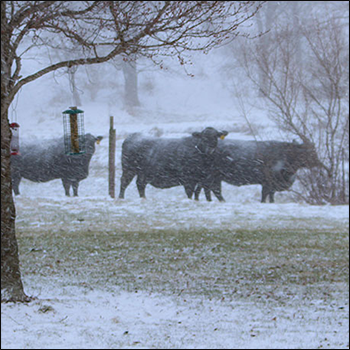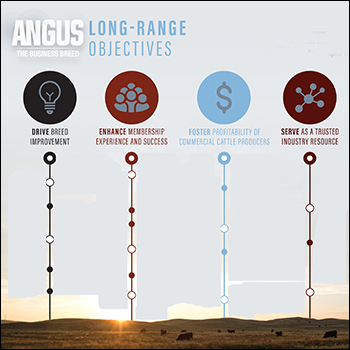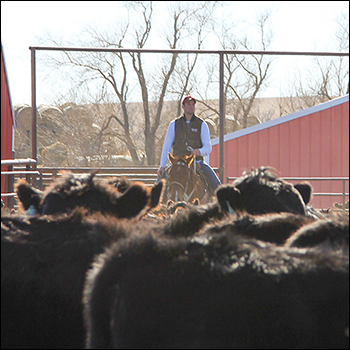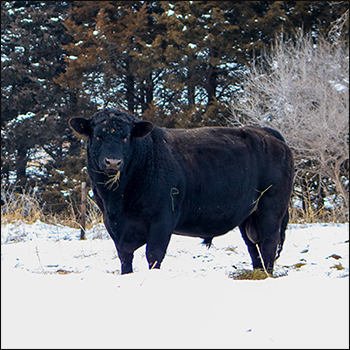
Estate Planning Survey Says! Part Two
Part 2 of 3: Survey results share current state of farm and ranch estate and succession planning.
Estate planning isn’t easy. If it were, more operations would have a plan. Rincker Law PLLC performed a survey distributed via email and posted via social media geared for ag producers. This article, part two of a three-part series, discusses the data from that survey and delves into priorities, fears and roadblocks with tips to overcome them.
Priorities
The interesting part of estate and succession planning is that it should be tailored and modified according to changing goals. Iowa ag lawyer Pat Dillon uses an analogy of someone juggling different goals; at any one time, only one goal is the highest priority. When asked the No. 1 priority for their estate plan, survey respondents offered a myriad of responses. Many centered on making sure the farm goes to the right people, transferring assets to beneficiaries, avoiding taxes and probate, keeping the farm as a viable business, and easing the generational transfer.
The goals noted here were as diverse as the survey respondents and the respective estate plans that would best serve their individual families. There are no cookie-cutter farm estate plans; they should be geared toward the changing goals of the family and modified accordingly over time.
Fears
There are undoubtedly roadblocks to a multi-generation farm family establishing a solid estate plan. When asked about their biggest fear when doing estate plans, survey respondents noted the following themes: wanting to make everyone happy, making sure it’s done correctly, cost, continually keeping it updated, time needed and taxes taking away the family’s hard work.
To help avoid the anxiety of getting it done perfectly the first time around, Rincker Law PLLC advises clients to get a simple estate plan in place immediately and perfect it over time. For example, Step 1 may be a simple last will and testament, powers of attorney for health and property, and a burial directive. Step 2 may be forming a limited liability company for the land ownership. Step 3 could be forming a second limited liability company for the farm operating company and then creating a landlord-tenant relationship between the two entities. Step 4, when funds allow, may be establishing a revocable living trust and pour-over will. The estate can be tweaked over time as the farming enterprise changes goals.
To placate fears on costs, there is an estate plan at every price point. The problem is wanting a champagne plan on a beer budget. It is also easy to be a “penny wise and a pound foolish” when it comes to legal services. It is paramount to find an estate-planning attorney who understands the unique dynamics of your farm family and agribusiness. An estate and succession plan should be something that every farm and ranch family should budget and plan for; as stated earlier, it can be done in steps to aid in affordability.
When asking participants their ideal budget for doing a farm/ranch estate plan, approximately 30% answered “no clue how much is a reasonable budget.” Agriculture lawyers need to be more transparent on pricing with the food and agriculture industry so it is not a mystery and scary for those considering an estate plan. About 20% stated that $1,000-$2,000 was a reasonable budget, whereas 20% stated $2,000-$4,000.
The important point here is that there is an estate plan to fit within different budgets. It may not be perfect to fulfill the needs of the farm or ranch, but it is also not permanent, leaving room for later adjustments.
Regarding the fear with changing laws, some estate-planning attorneys offer subscription services or send periodic updates to clients informing them of changes in the law (such as estate tax). This is also why it is recommended that folks visit with their estate-planning attorney every few years to revisit their plan.
Roadblocks
Time should never be a roadblock, but often is. Life is busy, after all. Rincker Law PLLC recommends to clients to put estate planning on your calendar and treat it like any other deadline in life, such as the deadline to file taxes, a deadline for court, or a deadline for a customer/client. No matter how far off this deadline is in the future, be accountable to this deadline and work backward with the estate-planning attorney.
If you hope to have your estate plan done before March 15, well in advance of planting season, then ask your estate-planning attorney when you should begin. Depending on the complexity of the issues, he or she may say to start one to three months in advance of this deadline. It also may take a month or so to get a retainer appointment with some estate-planning lawyers. In working backward on this form of goal setting, you may need to make your first contact with the lawyer four to six months in advance of the “deadline.” This is also why “emergency estate plans” while someone is on their deathbed are never ideal. Estate plans require careful and thoughtful planning.
Cost should not be a roadblock. As stated earlier, there is an estate plan to fit every budget. Have candid conversations with several estate-planning attorneys. Some estate-planning attorneys allow for long-term payment plans either before or after they do the work. This is a requisite part of life that must be planned and budgeted for.
The failure of other family members to have a plan should not be an excuse. If you are over the age of 18 and either are married or have children, or own any property, then you should have an estate plan. Using the failure of older generations to plan properly can no longer be a valid excuse in the agriculture community or the cycle will never break. Work on your estate plan anyway. Invite your parents or grandparents to the conversation. You cannot force them to do the work they need to do, but you can lead by example. Estate plans can be changed at any time. Have an estate plan even though life feels like it is in flux with children in college. Modify it later if needed.
For those families that do not know how to properly handle off-farm heirs, welcome to the common quagmire of nearly every multi-generation ag business in 2020. It is normal for parents to want to treat their children equally; however, as a caveat, equitable does not necessarily mean equal. Thoughtful planning should be done in this regard on the future of the business.
As for not knowing what to do, this is why every farm and ranch family should consult an estate-planning attorney knowledgeable in agriculture. Stay away from cookie-cutter do-it-yourself (DIY) estate plans, which may or may not be enforceable or fit your needs.
Every farm family knows how difficult it is to get everyone together. For more than a decade, Rincker Law PLLC has recommended to clients to use the holidays as a time to discuss estate and succession plans because it is the most likely time to get everyone in one place. Due to safety concerns surrounding COVID-19, some farm and ranch families may choose not to get together over the holiday season; however, the two themes of 2020 were the words “pivot” and “Zoom.” Multi-generation farm families should consider having a virtual pow-wow, either around the holidays or thereafter, to host a discussion. Consider having a mediator join the conversation, if needed, to spearhead and facilitate a fruitful discussion. With the use of video technology, there are no longer geographic restrictions on finding an ag mediator.
Finally, COVID-19 should not be an excuse. If anything, the silver lining of this pandemic is that many states have promulgated executive orders allowing for virtual notarization and will-signing ceremonies, so people can execute their estate plan out of the comfort of their own home with the use of Zoom, GoToMeeting, FaceTime or other video conference platforms.
Editor’s note: This article was edited from a longer article by Cari Rincker. She is the principal attorney at Rincker Law PLLC. See Part 1 of the series for a demographic description of the survey respondents.








